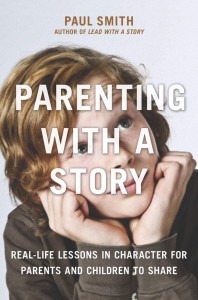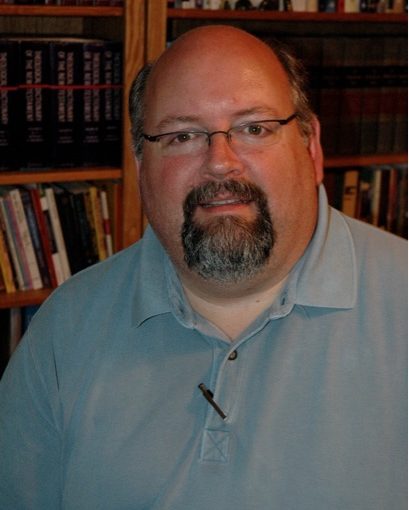Podcast: Play in new window | Download | Embed
Subscribe: RSS
Podcast (parenting-with-a-story-podcast-series): Play in new window | Download | Embed
Subscribe: RSS
 We’ve all heard “It’s better to give than to receive.” But the relationship between giving and receiving is a bit like the relationship between a leader and a follower. Before you can be an effective leader, you have to learn to be a good follower. So it is with giving. You’ll be a more caring, generous, and humble giver once you learn to be a grateful receiver. That’s the hard lesson Don Carter learned one Thanksgiving week several years ago.
We’ve all heard “It’s better to give than to receive.” But the relationship between giving and receiving is a bit like the relationship between a leader and a follower. Before you can be an effective leader, you have to learn to be a good follower. So it is with giving. You’ll be a more caring, generous, and humble giver once you learn to be a grateful receiver. That’s the hard lesson Don Carter learned one Thanksgiving week several years ago.
Getting the call
Don had been the pastor at the First Baptist Church in Eureka Springs, Arkansas, for four years. While he was there, he worked with a number of organizations to collect food and clothes and give it to those who needed it in the community, some of whom were even parishioners in his church. Then, not long after he left that position, and just a few days prior to Thanksgiving, Don got a call from Jim, the head of one of the organizations that often donated some of that food and clothing to Don’s church. “Don, can you come down here sometime today? We’ve got something for you.”
Don showed up later that day, and one of the staffers asked him to help load some supplies into Don’s car — a dozen or more bags of food and clothing. New clothes, mind you, not used— some for men, some for women, and some for children. And the food included an entire turkey and several bags of canned food. In all, it barely fit into Don’s roomy Dodge Caravan.
When the last one was in, Don went into Jim’s office and told him, “Okay, it’s all loaded. Where do you want me to deliver all this?”
Jim said, “Huh? No, you don’t understand, Don. All that’s for you.”
In a tone somewhere between confusion and disbelief, Don could only stammer out, “What?”
“Yeah,” Jim replied. “We heard things were hard at home right now. So we got it for you.”
That’s when Don responded,
But Jim, I didn’t know I was needy.”
“Don, just take it as a gift and a blessing,” Jim told him. And with that, Jim went back to work.
The drive home
Don piled in his now cramped car for the four-mile drive home, still reeling with confusion. But that quickly faded as he processed what was going on. “They think I’m poor and can’t take care of myself,” Don thought. Somebody was treating Don Carter, a man who’d spent his life giving to the less fortunate and leading mission trips and community outreach, like he needed a handout. “It made me almost mad,” he explained.
When he got home and walked in the door with the first bag, his wife, Lesa, noticed the look on his face. “What’s wrong with you?” she asked.
“I need your help unloading the car. I can’t even talk about it right now.”
As they unloaded bag after bag, Don took stock of the generosity of the gift. “What are we supposed to do with all this stuff?” he wondered. He told his wife where it came from, that someone heard they needed it and just gave it to him. Then, perhaps for different reasons, Don and his wife hung their heads at the kitchen table and wept.
He later realized that those gifts carried his family not just through Thanksgiving, but through the entire winter. Lesa tried to get him to write a thank-you note to Jim right away. But he couldn’t bring himself to do it. He hadn’t asked for any of this stuff. But whether he could admit it or not, the truth was that they did need it. Don had quit his job as pastor of the church four or five months earlier and hadn’t found a full-time job yet. In the meantime, he’d been doing a little part-time electrical work with a friend to make ends meet. And Lesa had some part-time hours at a day care facility. But even combined, that wasn’t bringing in enough to support his family of four. At one point Don even took a job washing dishes at a local restaurant.
The lesson
About two weeks after Thanksgiving, Don was finally able to overcome his pride and send a thank-you card. He told me, “Gratitude was a hard lesson for me to learn. That experience taught me that gratitude is a heart condition, not a need-based thing.” Whether he needed it or not was not really the issue. Being able to accept the gift with grace, dignity, and gratefulness was a matter of choice, not a matter of meeting some financial criteria.
After a while, Don, of course, moved on to other full-time pastor and ministry jobs. But how did that experience affect his ability to be generous? He said, “It changed my attitude for how to help other people because now I know what it’s like to be on the receiving end of giving. Plus now it’s even more joyful for me to give to other people. Because I know firsthand what a difference it can make in their lives.”
As with all the stories in these podcasts, I encourage you to share this with your kids, and then have a discussion about it. Here are some questions to get you started.
- Do you agree that it’s better to give than to receive? Why or why not?
- How does learning to be a more gracious receiver help make you a more humble giver?
- Why do you think Don got mad that he’d been given a gift? Would that have made you mad, too?
- How should Don have responded when Jim gave him the car full of food and clothing?
- In what circumstances should you refuse to accept a gift someone gives you?
[You can find this and over 100 other character-building stories in my book, Parenting with a Story.]
—
 Paul Smith is one of the world’s leading experts on business storytelling. He’s a keynote speaker, storytelling coach, and bestselling author of the books Lead with a Story and Parenting with a Story.
Paul Smith is one of the world’s leading experts on business storytelling. He’s a keynote speaker, storytelling coach, and bestselling author of the books Lead with a Story and Parenting with a Story.

 Connect with him via email here.
Connect with him via email here.
Follow him on Facebook, LinkedIn, Twitter.
Sign up for his newsletter here to get one new story a week delivered to your inbox.

